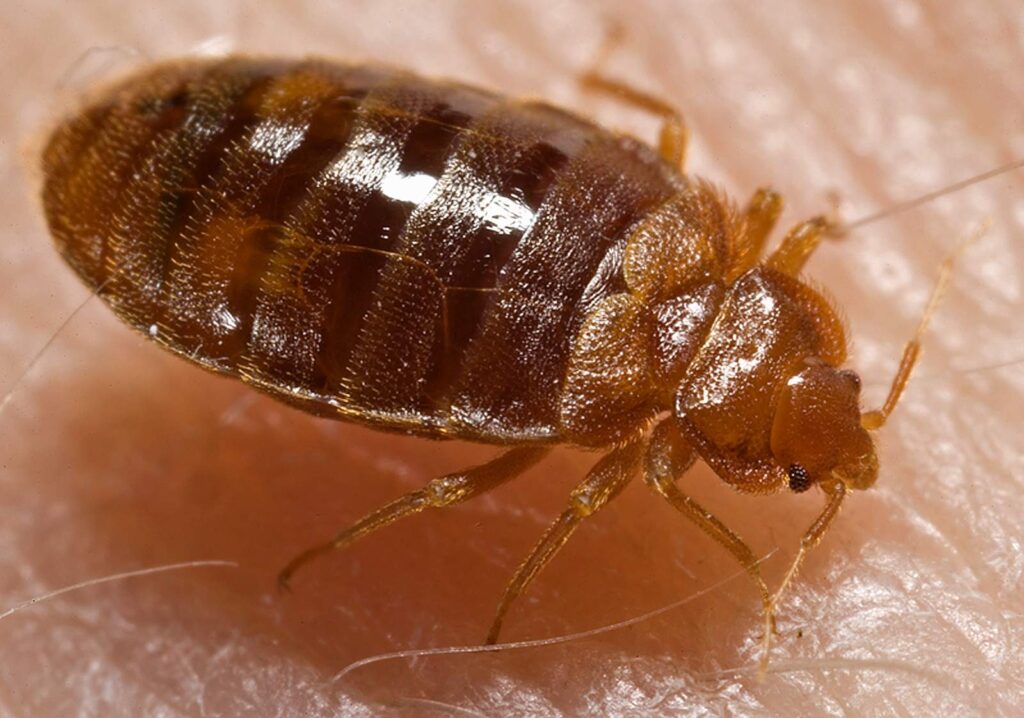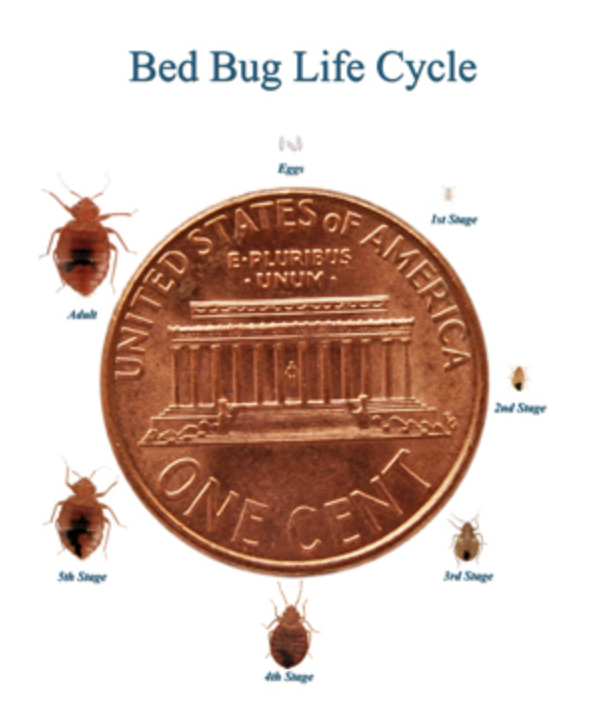It’s been a few years since I last wrote about bed bugs! It feels like I’m compelled to discuss these tiny bloodsucking critters every three or so years! Currently, I’m back in Paris, and there’s a noticeable media hysteria surrounding bed bugs. I have had numerous people messaging me warning me about the situation!
Having experienced an infestation once, I can attest that it’s a far-from-pleasant experience. I often think of bed bugs as little vampires, stealthily settling into our cosy beds to feast on our blood as we slumber. The mere thought of these pests sends shivers down many people’s spines, and it can trigger instant itchiness in those who’ve had the misfortune of encountering them.

Before delving further into safeguarding ourselves from these pesky critters, let’s understand what bed bugs are. Bed bugs (Cimex lectularius) are small, reddish-brown parasitic insects that feed on the blood of humans and animals. They are aptly named as they often take up residence in our beds, where they stealthily come out at night to feed on our blood while we’re blissfully unaware.
While these little critters don’t pose major health risks, their bites can lead to itchy, red welts on the skin. In some cases, bed bug infestations can cause anxiety and sleep disturbances.

There are three crucial things to know about the current situation with bed bugs.
Firstly, their numbers have been on the rise for several decades due to increased globalisation, the rise of freight containers, and the banning of many chemicals. Additionally, the successful control of cockroaches, which are natural predators of bed bugs, has further aided the spread of these pests. It stands to reason that Paris, being the number one tourist city globally (44 million visitors), is likely to have its share of bed bug issues.
The second key point is that many claims of bedbug sightings across Paris may be rumours and lies. No sightings have actually occurred on the metro and on TGV high speed trains. The estimates are that there has been a 30 percent increase in bed bug infestation numbers in Paris. However reports of possible sightings are up by a much higher rate, but 40% have been false reports. The suggestion here is that the explosion in reports has not been due to an increase in bed bug populations but rather to our increased awareness, fear, and the rapid spread of myths and half-truths through social media.
Finally, the third point is that we need to remember that while the probability of a single hotel having bed bugs amid an infestation outbreak is pretty high, the aggregate numbers are relatively modest. The chances of the insects being in your room are considerably fewer, and the chances of bringing enough of them home to establish an infestation are even lower. I have stayed at youth hostels, homes, one to five-star hotels, guest houses, B and Bs for over 2000 nights in 500 cities in 86 countries and encountered them once.
Having said that, I diligently follow specific routines to protect myself from bed bugs. The key to dealing with bed bugs is to prevent them from infiltrating your space in the first place and to know how to minimise the risk of inadvertently transporting them to your home. Here are my rules for bed bug avoidance:
- Check the Bed Bug Registry: Before booking a hotel, ensure its bed bug-free by consulting the Bed Bug Registry for Canadian and US hotels or visit bedbugs.net for global information.
- Inspect Your Mattress: Peel back the bedding and examine the seams of the mattress for telltale signs of bedbugs, such as bloodstains, the bugs themselves, or tiny pale poppy-seed-like eggs.
- Keep Your Suitcase Off the Bed: Prevent bedbugs from hitching a ride on your suitcase by placing it on an non-upholstered piece of furniture or one of those portable stands instead of the bed, couch or armchair.
- Do not Place Clothes on the Bed: Bedbugs can easily transfer from your garments to the bed and vice versa.
- I don’t take my clothes out of my bag and if I do, they do not go into drawers. I hang them or place them on shelves with no fabric nearby.
- Launder Your Bedding and Garments: If you suspect you’ve been exposed to bedbugs, wash your bedding and garments at a minimum of 50°C (120°F) and dry them on high heat. Avoid sending them to a launderette or dry cleaner to prevent sharing the problem.
Any other advice?


Leave a Reply